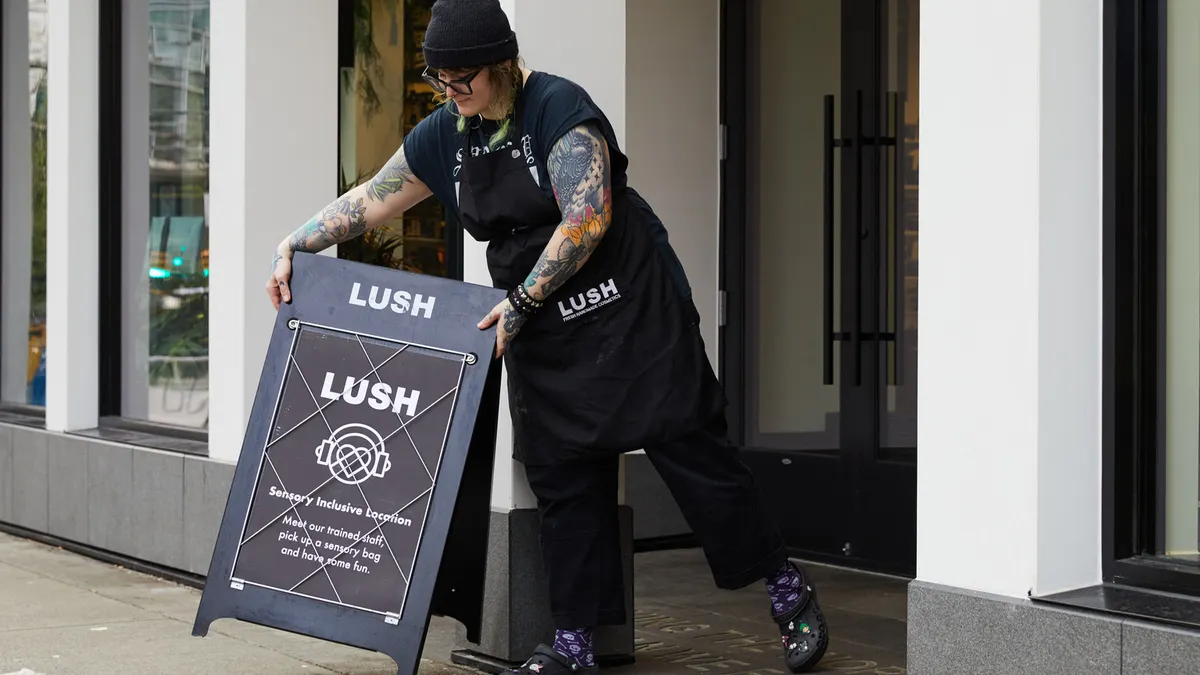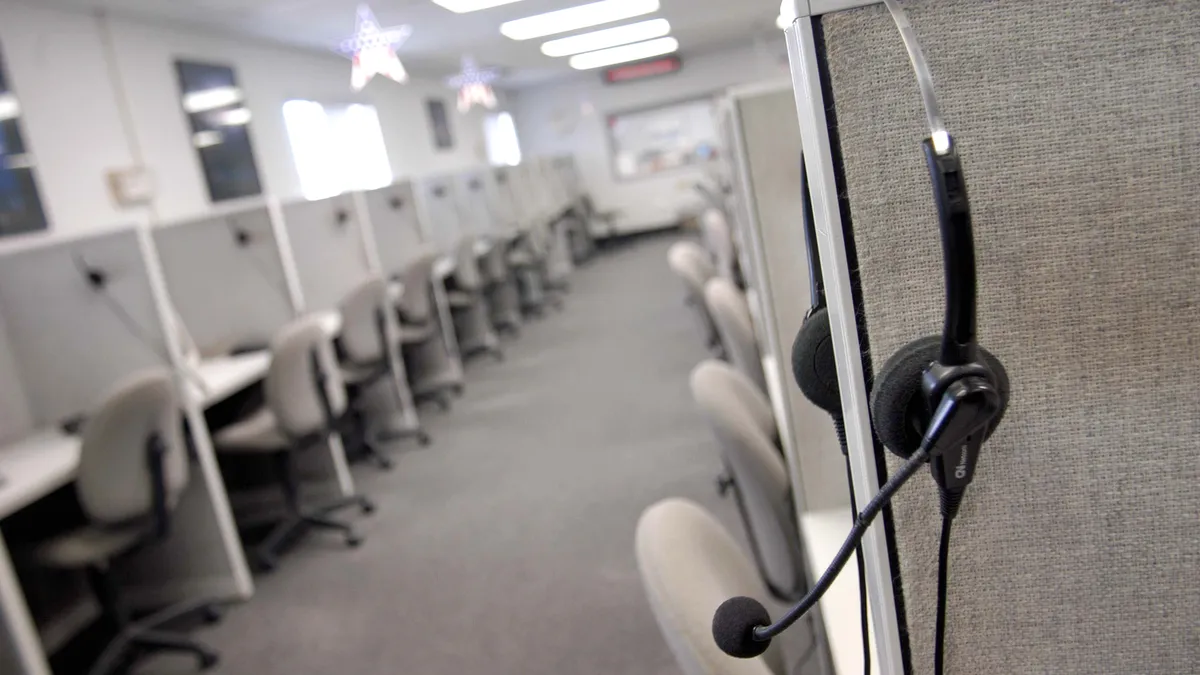In 2023, I found myself in Las Vegas as much for work as I did for pleasure. Less than a month apart, I attended SHRM’s annual conference and Sick New World, a 2000s metal festival. As a Las Vegas novice, I was shocked by how overwhelming the city can be for someone with sensory issues.
I have always lived in cities or urban areas, but the drone of jazz and rock ‘n’ roll at max volume, the freely blown tendrils of tobacco, the harsh beams of neon light and the pings of gambling machines were a lot to take in.
Not to mention, in summer, it’s hotter than the devil’s armpit — and bone dry, too. Sick New World was my first real music festival; by 1 p.m., I was already overstimulated by the sun beaming down on my freshly shaved head and bare shoulders and by the thickets of people at every turn. As I sat down on the neon purple turf and tried to get some relief under the thin seating-area awnings, a shimmering metal trailer caught my eye. That’s when I found out about KultureCity.
Walking over to the KultureCity staff fundamentally changed my life. There, in the middle of the desert playground, was a quiet, cool, dark room with bean bags, where festivalgoers could take a reprieve from the unforgiving sounds, smells and other sensations of heavy metal.
I don’t think I would have lasted another 12 hours if I didn’t get the opportunity to recharge — or know that there was a safe space for me. And now, in partnership with Lush Cosmetics for Autism Awareness Month, KultureCity is piloting more opportunities to create sensory-friendly experiences for people moving throughout the world.
The seed for this partnership was planted by employees and watered by an employee resource group — a corporate work structure under heavy scrutiny by DEI detractors, including President Donald Trump, who want to pressure companies to fall back from diversity initiatives.
From a (neurodivergent) consumer standpoint, the Lush partnership makes sense because the store can be a sensory wonderland or nightmare, depending on your needs. This was a concern of employees, which ultimately spurred the soap, body care and fragrance brand to partner with KultureCity, according to Amanda Lee Sipenock Fisher, belonging program lead in Lush’s DEI department.
While Autism Awareness Month ends April 30, Lush’s DEI lead also gave advice to HR practitioners looking to champion autism acceptance year-round. The company’s commitment to neurodiverse employees and customers includes everything from anti-ableism training to reframing neurodiversity as a strength — as opposed to a weakness.
This interview has been edited for length and clarity.
HR DIVE: Why did Lush Cosmetics decide to partner with KultureCity?
AMANDA LEE SIPENOCK FISHER: We know there is a community of people with sensory needs who may not always find our shops accessible without the right tools and trained staff to help them at any point of the day.
Lush’s CINDers (Chronically Ill, Neurodiverse and Disabled) Community Network had flagged the need for sensory-inclusive shopping in our retail stores and brought this need to the Diversity, Equity, Inclusion, and Belonging Program. Then we met KultureCity.KultureCity, the world’s leading nonprofit organization working in sensory disability advocacy, stood out to our DEIB Program because they focus on sensory inclusion all the time, for everyone — no matter the age or sensory need.
Lush’s partnership with KultureCity makes authentic accessibility possible to Lush fans who previously may have seen Lush stores as a place not made with them in mind. While many love and seek out Lush’s in-store experience for its bright colors, buffet of smells and bountiful opportunities to try products for themselves, there is room to create more pathways for customers with sensory disabilities to enjoy it all.
Our work becoming certified as “sensory inclusive” allows us to meet our customers where they want us to meet them, instead of making assumptions about what’s needed.
What does this partnership look like?
At the 25 Lush shops that have launched the pilot program in its first year, staff received training and certification empowering them to meet the needs of customers with sensory disabilities.
Additionally, KultureCity’s sensory bags are available for customers with items including noise-cancelling headphones, fidget tools, strobe-reducing glasses and an emotions-cue card when the ability to communicate nonverbally is helpful.
Shops also have masks available to assist in any smell-related sensory avoidance. Through small, impactful environmental modifications like trained staff and the sensory bags, accessibility and inclusion are possible all of the time.
What does neurodiversity mean to you? How does honoring that look in the workplace?
According to the staff who completed Lush’s fourth global demographic survey in May of 2024, just over half of respondents (55%) shared they were disabled, neurodiverse and/or living with chronic illness. Of that group, 51% shared that one or more of their conditions were nonvisible.
A core part of Lush’s customer experience philosophy centers ideas like always getting curious and never assuming and tailoring experiences, and these come to life in our internal staff experience through a focus on equitable pathways for success. People leaders prioritize taking a nonprescriptive approach to how we support all our staff, including those who are neurodiverse.
We offer training around challenging ableism in our daily actions both in and out of work, and encourage staff to take advantage of our CINDers community network as a place of connection, solidarity and learning.
The neurodiverse experience is vast and unique, and we always hold close that no one experience is the same. And that’s a good thing.
Some of our neurodiverse staff have discussed how to reframe — for themselves and others — how their neurodiversity is one of their strengths. We want more representation of people who bring unique approaches and ways of thinking. This keeps us, as an organization, fluid, adaptable and fresh.
What’s one tip that HR folks can use to champion autism acceptance this month and year-round?
Seek out the perspectives of your neurodiverse staff, and then listen to, believe and act on what they tell you. If we’re truly trying to support and accept our neurodiverse communities, we have to ask how to do so to really get it right.





















